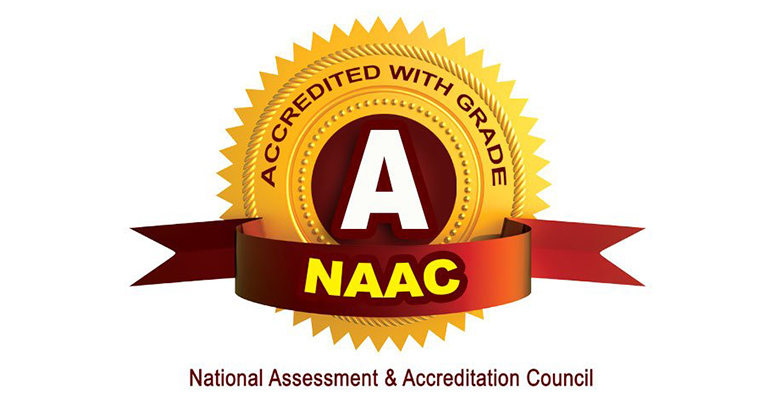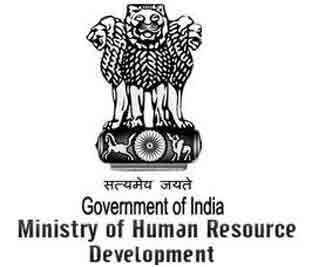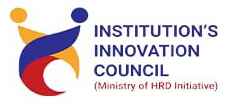Information Science and Engineering Programmes
| Course Name | : | Information Science & Engineering |
|---|---|---|
| Type | : | Under Graduation |
| Year of Approval | : | 2000 |
| Intake | : | 180 |
| Accreditations | : | The NBA accreditation is valid until June 30, 2026. |
Program Educational Objectives (PEOs)
| PEO1 | Graduates will be successful professionals in IT industry with good design, coding and testing skills, capable of assimilating new information and solve new problems |
|---|---|
| PEO2 | Graduates will communicate proficiently and collaborate successfully with peers, colleagues and organisations |
| PEO3 | Graduates will be ethical and responsible members of the computing profession and society |
| PEO4 | Graduates will acquire necessary skills for research, higher studies, entrepreneurship and continued learning to adopt and create new applications |
Program Specific Outcomes (PSOs)
| PSO1 | Design and develop efficient information systems for organizational needs |
|---|---|
| PSO2 | Ability to adopt software engineering principles and work with various standards of computing systems |
Program Outcomes (POs)
| PO1 | Engineering Knowledge: Apply the knowledge of basic sciences and engineering fundamentals to solve engineering problems. |
|---|---|
| PO2 | Problem analysis: Identify, formulate, review research literature, and analyse complex engineering problems reaching substantiated conclusions using first principles of mathematics, natural sciences, and engineering sciences. |
| PO3 | Design/development of solutions: Design solutions for complex engineering problems and design system components or processes that meet the specified needs with appropriate consideration for the public health and safety, and the cultural, societal, and environmental considerations. |
| PO4 | Conduct investigations of complex problems: Design & conduct experiments, analyse and interpret the resulting data to solve Chemical Engineering problem |
| PO5 | Modern tool usage: Apply appropriate techniques, resources and modern engineering & IT tools for the design, modelling , simulation and analysis studies. |
| PO6 | The engineer and society: Assess societal, health, safety, legal and cultural issues and their consequent responsibilities relevant to professional engineering practice. |
| PO7 | Environment and sustainability: Understand the relationship between society, environment and work towards sustainable development |
| PO8 | Ethics: Understand their professional and ethical responsibility and enhance their commitment towards best engineering practices |
| PO9 | Individual and team work: Function effectively as a member or a leader in diverse teams, and be competent to carry out multidisciplinary tasks. |
| PO10 | Communication: Communicate effectively in both verbal & non-verbal and able to comprehend & write effective reports |
| PO11 | Project management and finance: Understand the engineering and management principles to manage the multidisciplinary projects in whatsoever position they are employed. |
| PO12 | Life-long learning: Recognise the need of self education and life-long learning process in order to keep abreast with the ongoing developments in the field of engineering. |
| Course Name | : | Mtech in Artificial Intelligence & Data Science |
|---|---|---|
| Type | : | Post Graduation |
| Year of Approval | : | 2023 |
| Intake | : | 18 |
Program Educational Objectives (PEOs)
| PEO1 | Graduates will be successful professionals in IT industry with good design, coding and testing skills, capable of assimilating new information and solve new problems |
|---|---|
| PEO2 | Graduates will communicate proficiently and collaborate successfully with peers, colleagues and organisations |
| PEO3 | Graduates will be ethical and responsible members of the computing profession and society |
| PEO4 | Graduates will acquire necessary skills for research, higher studies, entrepreneurship and continued learning to adopt and create new applications |
Program Specific Outcomes (PSOs)
| PSO1 | Design and develop efficient information systems for organizational needs |
|---|---|
| PSO2 | Ability to adopt software engineering principles and work with various standards of computing systems |
Program Outcomes (POs)
| PO1 | Engineering Knowledge: Apply the knowledge of basic sciences and engineering fundamentals to solve engineering problems. |
|---|---|
| PO2 | Problem analysis: Identify, formulate, review research literature, and analyse complex engineering problems reaching substantiated conclusions using first principles of mathematics, natural sciences, and engineering sciences. |
| PO3 | Design/development of solutions: Design solutions for complex engineering problems and design system components or processes that meet the specified needs with appropriate consideration for the public health and safety, and the cultural, societal, and environmental considerations. |
| PO4 | Conduct investigations of complex problems: Design & conduct experiments, analyse and interpret the resulting data to solve Chemical Engineering problem |
| PO5 | Modern tool usage: Apply appropriate techniques, resources and modern engineering & IT tools for the design, modelling , simulation and analysis studies. |
| PO6 | The engineer and society: Assess societal, health, safety, legal and cultural issues and their consequent responsibilities relevant to professional engineering practice. |
| PO7 | Environment and sustainability: Understand the relationship between society, environment and work towards sustainable development |
| PO8 | Ethics: Understand their professional and ethical responsibility and enhance their commitment towards best engineering practices |
| PO9 | Individual and team work: Function effectively as a member or a leader in diverse teams, and be competent to carry out multidisciplinary tasks. |
| PO10 | Communication: Communicate effectively in both verbal & non-verbal and able to comprehend & write effective reports |
| PO11 | Project management and finance: Understand the engineering and management principles to manage the multidisciplinary projects in whatsoever position they are employed. |
| PO12 | Life-long learning: Recognise the need of self education and life-long learning process in order to keep abreast with the ongoing developments in the field of engineering. |







